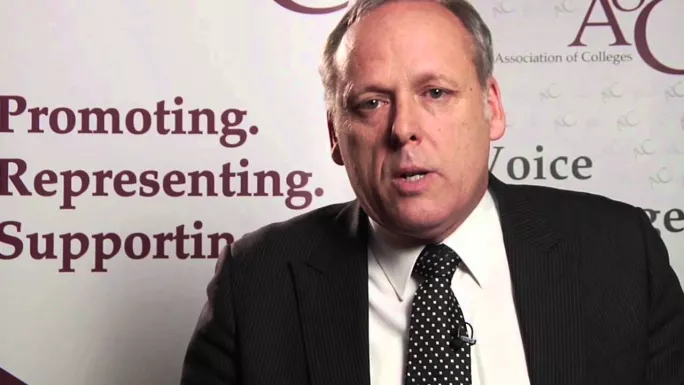‘I would like to say that cuts to funding for 16- to 18-year-olds was the product of a rational thought, but it’s not’
Martin Doel, chief executive of the Association of Colleges, writes:
5:4:8 is the ratio of per capita funding for school pupils, those completing further education and those in higher education.
Each pupil aged 11 to 16 in a school is funded to an average of £5,000 while the current average tuition fee for a university course is £8,750. The sum allocated for 16- to 18-year-olds is currently £4,000. But the recently announced cuts mean that if a student is unfortunate enough not to complete their studies by the end of the academic year in which they turn 18, perhaps through illness or through a wrong decision at 16, this will now fall to a miserly £3,300. It is hard to know why it is that a 16- to 18-year-old is worth so much less than an 11 to 16-year-old or a student in HE.
This is particularly ironic, given that the government is so keen for further education colleges to play a leading role in getting our young people work-ready and off the Neet register.
I would like to say that it was the product of a rational consideration of the costs of quality delivery and the benefits to individuals and the nation, but it’s not. Like much of our education system it is the product of incremental change made as a result of short-term political considerations. In fact, it flies in the face of the government’s agenda for an increase in high-quality apprenticeships and delivery of the new traineeship programme, both of which rely heavily on college support.
One major consideration is that 16-18 education is more diverse and harder to explain than either school or university provision. There is a multiplicity of routes, of providers and of qualifications in the sector. Anything beyond the narrow A-level-to-university path is neither well understood nor appreciated by policy-makers. These officials and politicians are more likely to have followed the traditional route from their school sixth form to university and into policymaking - and they aspire for their children to do the same.
However, almost two-thirds of young people in the state system follow an alternative route - perhaps via a further education college - into higher education or work. This is actually the majority provision, with almost double the number of 16- to 18-year-olds studying in a college compared to a maintained school or academy sixth form. But, from the point of view of officials and politicians, this course is effectively for ‘other people’s children’.
When the pressure on funding is intense, or when an election approaches, decisions inevitably gravitate toward the interests of the most articulate and noisy constituencies. It falls to colleges to champion the needs of the less articulate, such as young people who are Neet, those who are unemployed, those wishing to pursue vocational education and training and those who have left school with few or no qualifications.
At a time when standards of numeracy and literacy are bemoaned by government and business, colleges are being called upon to recruit 1,200 more maths and English teachers to help young people who’ve failed to achieve a C grade at GCSE to meet this standard. Additionally, there has been a call this week from the shadow work and pensions secretary, Rachel Reeves, for people claiming the Jobseeker’s Allowance to be assessed on their maths, English and IT skills. It’s proposed that those that who fail to make the grade should attend their local college for training.
Colleges are the ideal place to help people train for fulfilling jobs as they provide a wide range of qualifications from basic skills, to the academic, the vocational and degree level. But to continue to be all things to all people, there needs to be an adequate level of funding to maintain quality. A rational and long-term approach is required to support this oft-neglected age group.
Keep reading for just £1 per month
You've reached your limit of free articles this month. Subscribe for £1 per month for three months and get:
- Unlimited access to all Tes magazine content
- Exclusive subscriber-only stories
- Award-winning email newsletters




